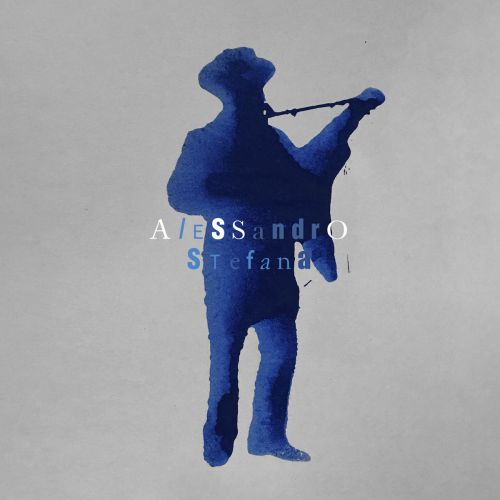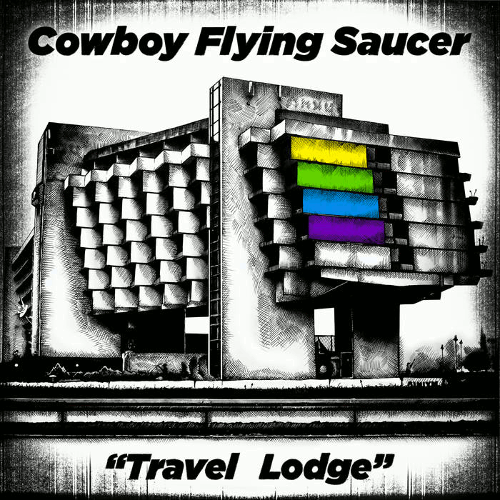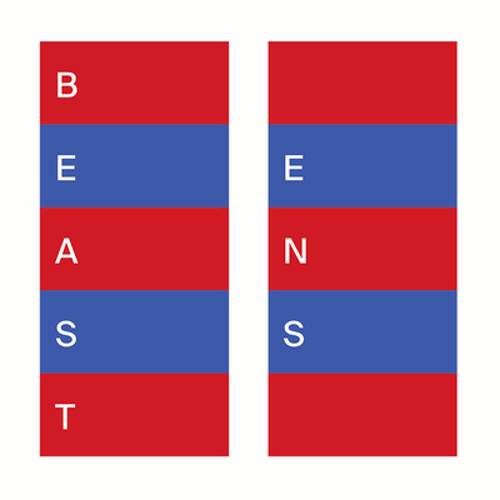Anal;
Ash Ra Tempel;
Brain Donor;
Coil;
Julian Cope;
Groundhogs;
Kid Strange;
Queen Elizabeth
The South Bank Centre, London
1st-2nd April 2000
Since this two-day festival in the South Bank Centre is essentially Julian Cope‘s entry in the venue’s largely excellent series of Mini-Meltdowns, it probably comes as no surprise that he is seemingly omnipresent, playing solo twice, and collaboratively in the guise of both Brain Donor and Queen Elizabeth. This could easily have been something of an ordeal for those not of the fanlike persuasion for this most eccentric and Rock of eccentric Rock stars, but thankfully there was much to be admired and enjoyed at Cornucopea – the brightly psychedelic esoteric symbolism on dispay in the foyer of the Queen Elizabeth Hall on the first night (all too appropriately run on All Fool’s Day); the marvellously Tardis-sized starry-print, fake-fur Disco booth of the Miniscule Of Sound, a superb piece of pint-sized clubbing and a haven for both those seeking a sly smoke and Ian Dury fans alike; the sight of a South Walian “Free Cannabis” banner flying high above the stage; The Mellotron Brothers, inventors of the device of the same name, wandering the halls in labcoats and a flurry of eccentric statements; the Krautrock Colouring Competition, with eager Kosmische fans scribbling and scrawling over Bridget Riley‘s dizzying cover to The Faust Tapes in the knowledge that they would have to compete with the expert talents of Cope’s daughter to win the coveted first prize of a copy of Amon Düül‘s gatefold classic Disaster.
Musically, the first night was a mixed bag of Cope’s enthusiasms and indulgences. Anal is not only a vibrantly orange-haired and robotic abuser of the VCS3 synthesizer (sharp stabs and squeals permeated the foyer at intervals throughout the night) but also a tank driver on leave from Kosovo for the show. He made loud noises of varying volumes and intensities, and occasional unpleasantness as perhaps befits his day job. Oscillator swoops, groaning arpeggiations, that sort of thing. Julian Cope’s address to the capacity crowd of assorted heads and self-confessed weirdos was engaging, infuriating, self-consciously wacky (he even declared himself to be “Post-ironic” in a leering, ironic manner) and conducted from the vantage point of boots of a size quite suited to walking on a lunar surface – so at least he came well prepared for not only the April-shower dampened streets of London, but later extraterrestrial travels. His solo set includes many a quip and crowd-pleaser, the most notable being a heavily flanged and wah’ed “Pristeen”. In fact, Cope was so in love with the sound of not only his own voice, but the phasing swoop generated by the six/twelve strings and several necks of guitars found lining the stage that he kept up some sustained banter as well as seriously long rides on the effects pedals, to surprisingly restrained ends – he knew when enough was enough, and the benefits of silence in counterpoint to the curling fuzz trails. With plenty more from him later on over the weekend, he could contain himself somewhat for the opening invocation (Odin’s name kept cropping up, as well as references to the Vikings’ misrepresentation of him as a bit of a combative god over the poetic side – more on this later) – this was probably a good thing all in all, and rather entertaining for a while.
The Groundhogs played off to one side after Cope’s intro, in the relatively small but pleasing Purcell Room to a fair-sized crowd who soon got a taste of one of the greats of British Rock history, Tony McPhee and his amazingly dexterous fingers on the fretboard. To watch McPhee play is a marvel of technique and obvious enjoyment, built on years of experience and a prodigious talent on the guitar. On this night he was in fine form, with the group managing only about four songs in their forty-minute set (it was a weekend for some seriously extended pieces), including the fabulously R&Bluesy “Split Parts 1 & 2”. McPhee has a distinctive sound thanks to his multi-finger picking style and tightly-controlled use of the whammy-bar; about as close as anyone living to all the best elements of Hendrix – but thankfully without the bombast. The Groundhogs’ performance also ended up as one of the highlights of this festival, demonstrating that old-fashioned Seventies underground Rock & Roll still has much to recommend it in the hands of experts.
By contrast, Queen Elizabeth (who of course played in the Queen Elizabeth Hall) made a bid for the most outrageously Progressive sound since The Cosmic Jokers of the weekend. With more synthesizers of all shapes and sizes on display than seemed perhaps necessary for the sound they produced, plus Cope’s favourite Mellotron 400 and a few iMacs for good measure, it was a remarkable show for several reasons. First being that it was an outing for the hour long “Dianaver” from the Now Goddess trilogy; as Cope explained at length in the foyer, this work in progress includes tributes to and invocations of two other contemporary icons/goddesses, those following on from the ex-Princess Of Wales being Linda McCartney and the murdered TV presenter Jill Dando – three celebrities of various statures who acheived mass veneration, if not actual sainthood, after their deaths in recent years. He may be trying to reclaim these figures for the “underground”, but Cope still has a lot of convincing to do on this subject, and how Queen Elizabeth’s music fitted it remained a little elusive.
Second and thirdly in the confusion and entertainment stakes about QE was the appearance of not one but three Thighpaulsandras, all dressed alike in quite natty frilled cuffs and white body suits, with the trio in cloned disguise under double tufts of hair presenting an androgynous alien identity. JC handled the Mellotron and the vocal intonations on the subject of Diana alike to quasi-religious effect, and while there were some very pleasant pasages of Theremin and Moog, knob-twiddled squeaks and sliding squalls, there were also frightening echoes of the opening keyboard riff to Dire Straits‘ “Money For Nothing” in one passage which made for extremely disturbing associations. Still, the ensemble also showed themselves to be capable of whipping up a cosmic space storm from time to time, and received a rapturous reception. The same couldn’t be said on the same scale for the woefully dull Kid Strange And The Doctors Of Madness who were promisingly billed as “firm favourites of all the forward thinking motherfuckers”. This man is obviously a post-Glam inspiration for the weekend’s convener, but less so for a large section of the rapidly uncrowded foyer, and he banged out some overly-loud pub rock tunes almost entirely divorced from the slightly peculiar Seventies track included on the free CD Programme presented to every ticketholder.
Last up for the Saturday night were Cope’s newest band, Brain Donor. Apparently formed to indulge both Mr. and Mrs. C.’s love of KISS, the flawed genius himself and long-time Cope guitarist Doggen strapped on the doublenecked Dan Electros and kicked out their own particular Garage Metal jams. Was the epithet self-indulgent mentioned yet? Brain Donor was all this and more, and extra ladled on for good measure; funny for the Simmonds-eque make-up and those enormous boots, and not much more than that beyond the first couple of songs and the back projection of a blinking psychedelic eye moving slowling into and out of the pupil with its gently orbiting harmonic spheres. This film was replaced by a more amusing show of the group in rehearsals, but much of the audience had fled into the night in search of transport away from the excesses of cod-Metal April Foolery by this time.
Day two, and everything had shifted to the caverous Royal Festival Hall for an evening of stupendous electronic noise and more Odinism courtesy of the anti-Saint Julian. Without doubt the crowning acheivements of Cornucopea were not only the reforming of Ash Ra Tempel to play for the first time in both London and together in thirty years, but for the persuasion of Coil to make an ultra-rare live appearance, an event which was last rumoured and scuppered around the time of the death of their great friend Derek Jarman some five years before. Whatever might have been expected of John Balance and Peter Christopherson was surpassed several times over by these most gifted of musical magickians. Accompanied by what could probably be assumed with some confidence to be the original Thighpaulsandra, and Cyclobe‘s Simon Norris, Coil entered onto a stage decked simply with a banner displaying the black oval scrying glass design which features on the cover of the album of which this Time Machines performance was presented as being the live incarnation, a series of ultra-violet lit poles, and plain sheet-draped racks for their electronics, created as an eerie combination of surgical cleanliness and purified ritual space.
But what an entrance. Introduced to perform with the alternate title of “The Industrial Use Of Semen Will Revolutionise The Human Race”, the four men, dressed in furry white suits (complete with hoods) decked with oval mirrors which give them a sinisterly whimsical appearance somewhere between lab-rats, arctic explorers and (as was the inevitable description heard afterwards) The Teletubbies took their places with an air of slow-motion solemnity. There has rarely been a sight at once cute and ominous, disturbing and hilarious, and Coil should be praised highly to the stars just for stepping out on stage after all the years of prevarication dressed in such marvellously eccentric costumes, and the welcome they received was an eager and astonished acknowledgement of their presence. With a touching hug for each other, the quartet set down to business, and business was decidedly estranged, and suitably symbolic. As was the pattern for the night, the emphasis on analogue synthesis was high, but in uniquely Coil fashion — growing ranges of shifting treble, ceiling-shuddering bass booms, wave-riding drones and plateaus of noise featured in a set which drifted into and out of Time Machines to include variations on Balance’s spoken part from “The Mothership And The Fatherland” and sections also exposed on the accompanying concert CD Queens Of The Circulating Library. These featured the sampled voice of Dorothy Lewis demanding the return of the Library’s books, that “The forest is a college, each tree a university,” moreover “All knowledge resides within me” and declaring that “Your membership has expired; you are way past your expiry date”, transforming Mothering Sunday into Mother Earth Moonday through this particular collective work of musically-activated temporal phase-shift.
Add in the gorgeously-vocodered quotation from Aleister Crowley, “Every man and Woman is a Star” and many of both Coil and the entire festival’s themes are encapsulated: transgendered evolution; esoteric technological mysticism, historical and transtemporal expositions on the nature of both future and past; circular and spiral motion through psychedelic time and space. As they played, one or other of the group would wander in a half-dignified, semi-comic gait brought about by the restrictions of the suits to stand before the sigil in a contemplative manner of worship, curiosity or scientific scrutiny. Sometimes they would shine torches in each other’s faces, looking for signs of who knows what, perhaps to stimulate the visual purple or even to make a mystery deeper, to communicate ideas of seeing. At one point, just to show that it really was a matter of smoke and mirrors, two cuddly celebrants reflected beams of light off miniatures of the scrying glass emblem through gouts of smoke around the Festival Hall interior, to slightly puzzling effect. By the perfomance’s end with the hoods which had been thrown back for the sake of avoiding stifling under the lights restored, and with one member draped obscurely on a speaker, soaking up the humming sounds emanating therein, the effect conveyed by this manifestation of Coil was a startlingly confusing mix of awe and amusement. The audience’s applause was rapturous, and their joyous group hug and final bow to the auditorium was unaffected and disarming.
That Julian Cope managed to follow such a stupendously weird performance was an acheivement which reveals his strengths as a performer. Once again, he took up a selection of guitars, double-necked and otherwise, to wah and phase his way through a selection of crowd-pleasing favourites, and to pronounce himself not only a poetic avatar of Odin, but also to be in possession of a cute behind. However, the most effective section was his long imaginary journey in which he took the audience and the now-renamed Republican Festival Hall spaceship (piloted with difficulty by an equally fictious George Clinton) on a journey Westward for Mother’s Day to the ancient site of Silbury Hill along a route of megalithic and resolutely modern dissident significance, with comic and ritualistic results. Thanks to his engaging storytelling, this journey was occasionally quite convincing and frequently funny, enjoying a passing curse upon the former Tory Transport Minister and current candidate for Mayor of London Steve Norris, the politician ultimately responsible for the destruction of much of the countryside around Newbury, as the ship passed overhead. However, the climax came with Cope’s rendition of “Sleeping Gas” on Casio drum machine and Mellotron, accompanied on the impressive Festival Hall pipe organ by Teadrop Explodes co-founder Paul Simpson (whose ambient Skyray project also appeared on the Saturday night bill) in a rousingly dronesome manner.
So it was something of a disappointment that the grand finale, the much-touted reunion of Manuel Göttsching and Klaus Schultz was little short of a New Age explosion of an effectively trippy light show. Eventually morphing into an undertow of crisply refried Techno beats, laid over with Gottsching’s plangently pleasant guitars and Schultz’s massive array of blinking-light synthesizers racked behind him, their performance took on the sonic qualities of an Ambient rave and the appearance of mission control at a space shot. Set off under a glowing canopy of projected stars, Ash Ra Tempel did succeed in producing some of the spaciest sounds this side of a System 7 concert, no doubt a group who owe a huge debt to Ash Ra but also equally prone to trickling masses of effects and warm melodies into an uniformly nice sound. This was the ultimate in Electronic comedown music, lulling some of the more drained audience members into sleep while entrancing others through a combination of carefully-crafted composition and admittedly magnificent tones generated by the wall of electronics. As a conclusion to the festival, it was the just about the perfect way to bring the circling heads and low-Earth orbiting bodies gently back through the ionosphere into their seats. With just two pieces of around half an hour each, the Ash Ra set was one of the longest, and the last burst of applause for them (largely delivered in anticipation of the conclusion thanks to an alleged misunderstanding that they were taking a cigarette break rather than leaving before an encore) was as heartfelt as for any of the other acts one what was a genuinely enjoyable weekend, often in complete disregard of the actual or imagined qualities of some of the performers.
-Linus Tossio-



